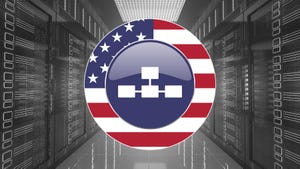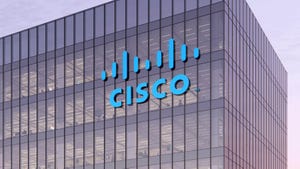Data Center News Roundup: Google’s Quantum Leap and AI Data Center DevelopmentsData Center News Roundup: Google’s Quantum Leap and AI Data Center Developments
In this week's top data center news, Google unveils its new quantum chip, Willow, and the Canadian government invests in AI data centers.

With data center news moving faster than ever, we want to make it easy for industry professionals to cut through the noise and find the most important stories of the week.
The Data Center Knowledge News Roundup brings you the latest news and developments across the data center industry – from investments and mergers to security threats and industry trends.
To keep up to date with all things data centers, subscribe to the Data Center Knowledge newsletter to get content straight to your inbox.
Quantum Developments: ‘With Great Computing Power, Comes Great Responsibility’
On Monday, Google unveiled Willow, a new quantum chip that dramatically outperformed the Frontier supercomputer. According to the company’s benchmark tests, Willow can do in mere minutes what would take Frontier 10,000,000,000,000,000,000,000,000 years.
But Google isn’t the only company that has recently made moves in the quantum computing space. Last Thursday, IonQ, a Maryland-based quantum computing company, announced the delivery of its Forte Enterprise quantum computer to the European Innovation Center in Arlesheim, Switzerland.
Capable of an algorithmic qubit count of #AQ36, Forte Enterprise will provide IonQ’s European customers with local access to IonQ’s most powerful quantum system – one capable of considering over 68 billion different possibilities simultaneously.
Now, the question remains: What will these companies do with all this power?
AI Data Center Regulation
On the AI data center front, a recently published paper from researchers in Germany calls for clearer policies to address the environmental impacts associated with the increased energy and water demand in AI data centers.
Titled "AI, Climate, and Regulation: From Data Centers to the AI Act," the report suggests twelve regulatory actions to enhance data center environmental accountability, including: imposing peak-hour energy restrictions for AI operations, mandating renewable energy creation by data centers, and setting binding renewable energy and efficiency targets.
“It’s a big ask,” said Philipp Hacker, co-author of the paper and chair for law and ethics of the Digital Society at the European New School of Digital Studies (ENS) at European University Viadrina, Frankfurt an der Oder. “But it reflects the broader need for all sectors to undergo significant changes in response to climate change mitigation and adaptation.”
Read DCK contributor Nathan Eddy’s breakdown of the report and its regulatory implication here.
Canadian Data Center Developments
Last Friday, the Canadian government announced an investment of C$240 million ($169 million) to help Toronto-based AI startup Cohere expand its data center AI compute capacity. Operations of the new Cohere data center are scheduled to begin in 2025.
Canada’s investment is part of a C$2.4 billion Canadian Sovereign AI Compute Strategy to grow the nation’s AI infrastructure and attract substantial private capital.
Nearby, Netherlands-based Yondr Group secured a 4.5-acre site in Toronto to develop its first Canadian data center in an effort to grow the company’s North American presence. Yondr expects the three-story 27MW data center to open in mid-2026.
Global Construction Projects and Investments
In other data center developments this week, BDx Indonesia, a joint venture between Indosat Ooredoo Hutchison, Lintasarta, and BDx Data Centers, deployed the first phase of an AI data center in Jatiluhur, Indonesia. The new CGK4 facility is Indonesia’s first renewables-powered AI data center campus.
In Malaysia, NTT DATA acquired 68.5 acres of land in Gelang Patah, Johor Bahru to develop a 290MW data center campus. According to a press release, the first of six buildings is expected to launch in April 2027 with an initial capacity of 48 MW.
“Johor Bahru is an increasingly important cross-border economic zone due to its proximity to Singapore,” said Doug Adams, CEO and President of Global Data Centers, NTT DATA.
With this in mind, Edgnex Data Centers, an arm of the Dubai-based Damac Group conglomerate, plans to invest approximately $3 billion in data centers across Southeast Asia, including Indonesia, Thailand, and Malaysia.
“Today, we have over 550 MW of projected capacity towards Southeast Asia, which effectively means that this could be a $5 billion market for us,” said Danish Nayar, senior vice president of investments and acquisitions at Damac Group.
Stateside, Northern Data Group announced plans for a 120 MW high performance computing data center in Maysville, Georgia, about 70 miles northeast of Atlanta. The 63-acre campus is expected to be fully operational in Q1 2027.
Finally, AVAIO Digital announced plans to purchase and develop a 452-acre site in Appomattox County, Virginia. The $3 billion Appomattox Data Hub will host a 300 MW data center campus with “substantial” onsite green power.
For more development news, check out Data Center Knowledge’s roundup of December data center deals, builds, and investments.
Other Great Reads in DCK This Week
A Guide to Data Center Circuit Breaker Design and Deployment. Data center circuit breakers protect equipment, but correct hardware management is key to reliable operations. Find out how to optimize design and deployment.
Microsoft Unveils Zero-Water Data Centers to Reduce AI Climate Impact. The new design will eliminate the more than 125 million liters of water each data center typically uses per year, the company said.
2025 Cloud Predictions: Legacy Cracks, AI Growth, and an Edge Boom. Adaptability is the key to thriving in this new era, and 2025 is the year to take control of your cloud strategy, writes Akamai’s Ari Weil.
Google Invests in Venture to Build Energy Parks for Data Centers. The tech giant entered into a partnership with Intersect Power to design and build big energy plants next to data center campuses.
Data Center Energy Demand and Decarbonization: Pathways to Sustainability. With energy demand soaring, data centers face mounting pressure to balance efficiency, decarbonization, and sustainability. Here's how they can adapt.
About the Author
You May Also Like








